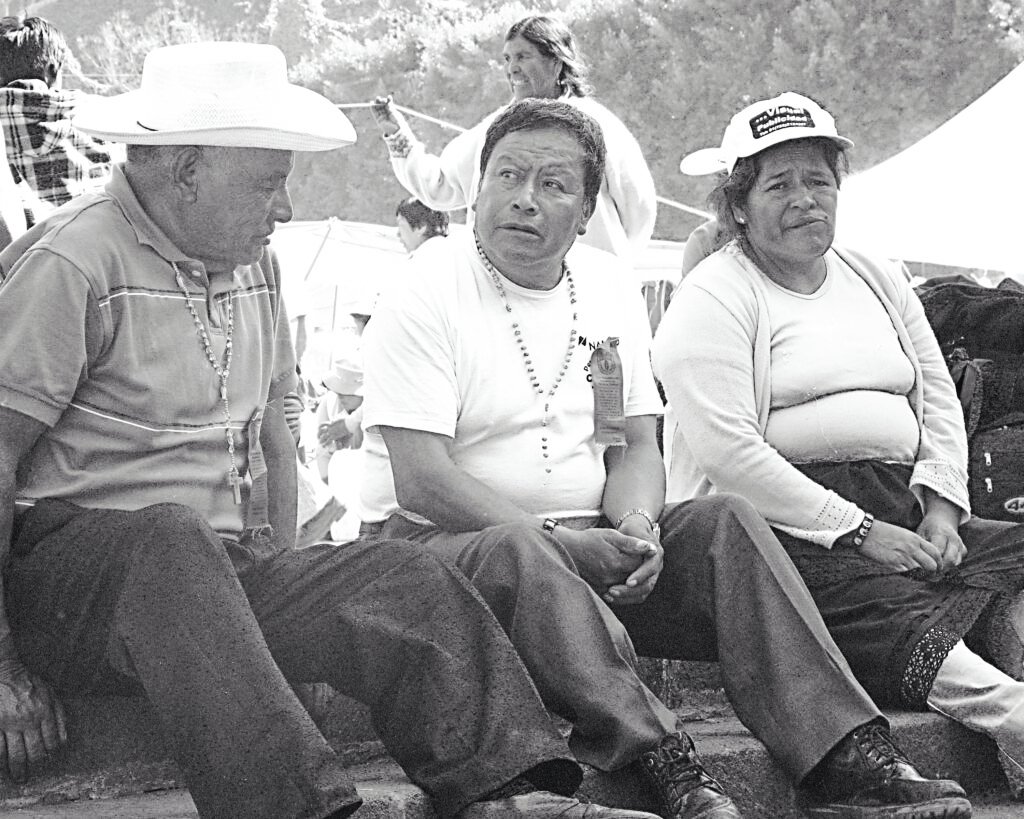
They come by foot. From Oaxaca, from Chiapas, from Jalisco. From desert villages with no names on maps. From brick kilns and sugarcane fields, barefoot, blistered, limping—carrying faith like a bundle of firewood across their backs. Some walk for ten days. Some longer.
In the cold weeks of early December, just before the Feast of the Virgin, they travel by highway and backroad, sleeping under overpasses, in ditches, on flattened cardboard under the stars. They pass taco stands and neon-lit Pemex stations, ignored by drivers who swerve to avoid the slow-moving lines of faith.
They are the poor pilgrims—los humildes, los verdaderos—the ones without tour buses or clean shoes, the ones who arrive singing through cracked lips and windburned cheeks. Their songs are hoarse but full. “Virgencita, no me dejes…” “Little Virgin, don’t leave me…”
Old men carry wooden crosses strapped to their backs. Young boys wear green-and-red capes, hand-stitched by mothers who wave goodbye from adobe doorways. A group of teenagers chant by flashlight, pausing only to apply ointment to raw heels or to pass around stale pan dulce.
When they reach the outskirts of Mexico City, the air thickens with diesel, noise, and promise. The closer they get to the Basílica de Guadalupe, the louder the drums, the more frantic the fireworks. But still they walk. Sleep-deprived. Hungry. Radiant.
At last, in the early hours of December 12, they crawl. The final meters—on knees. Across concrete. Through trash. Past vendors selling plastic Virgins and instant ramen. They crawl in tears, in silence, in agony. Some hold framed photographs of the sick. Others clutch bouquets of paper roses. Each knee-scar is a vow kept.
Inside the basilica, the tilma glows behind bulletproof glass—Juan Diego’s cloth, her image, that dark-skinned Virgin who chose the poor, who appeared not to priests or kings but to a barefoot peasant on Tepeyac Hill.
They gaze up at her.
They don’t ask for riches.
They ask for jobs.
For safe border crossings.
For a sick child’s fever to break.
For a husband to come home.
For strength to go one more year.
And after the candles are lit and the tears wiped clean, they begin the long journey back.
Weary. Limping. Grateful.
Because in the dust of their pilgrimage, they believe they were seen. And that—for the poor—is everything.